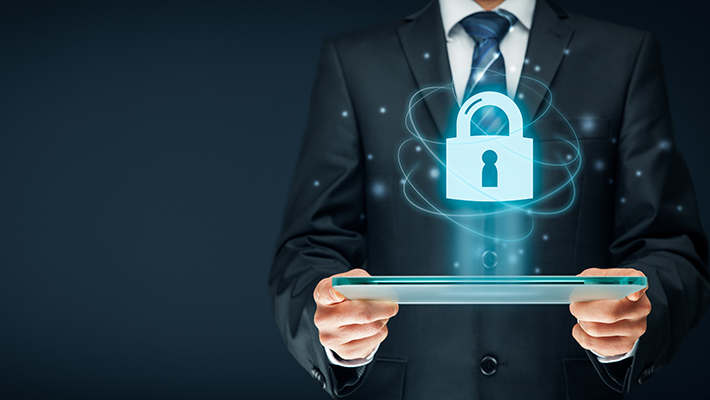What is Cyber Security and How Does it Matter
Today, the internet is there in all walks of life and business. People use the Internet to sell and purchase products and services, communicate with friends, colleagues, and customers, conduct banking and financial transactions, work remotely, and many such activities. This opens up room for hackers and cybercriminals to carry out cyber attacks on devices running on the internet. All participants in the internet ecosystem can be vulnerable to cyber-attacks. We will touch upon the basics of cybersecurity in this blog.
What is Cybersecurity?
People perform many activities that include business, shopping, investment, banking, entertainment, communication, work, etc. using applications and tools enabled by the internet. Cyber security is, therefore one of the hottest topics not only in technology and business domains but also in everyday life. Also known as information technology security, it refers to the technologies, processes, and practices designed to protect computers, networks, devices, software programs, apps, and data from any kind of cyber attack.
The aim of most of these digital attacks includes accessing, tampering with, modifying, or deleting private and confidential information, demanding ransom money from victims, disrupting business operations; or even fun. Cybersecurity means different things to different people in different situations. This nature necessitates relevant but varying approaches to address security threats. For example, a person who wants to protect their social media accounts from hacking are unlikely to subscribe to many cybersecurity tools and procedures used by the government or defense departments to secure their classified networks.
Typically, cybersecurity means the following for different persons and entities:
-
Individuals want to protect their personal data from unauthorized access by strangers and that their computing devices work properly and are free from malware.
-
Cybersecurity for small businesses may include securing the credit card and payment gateway data are protected from unscrupulous activities.
-
For online businesses, cybersecurity may include protecting servers from untrusted outsiders from hacking and interrupting business.
-
Cybersecurity may involve the protection of data centers that host numerous virtual servers with data belonging to many different organizations.
-
Government departments and organizations are worried about leaking out or compromising different classified data, each with its own set of related laws, policies, procedures, and technologies.
The bottom line is that while the word cybersecurity is easy to define, the practical expectations that enter people's minds when they hear the word vary quite a bit.
Types of Cyber Security Threats
The following, though not an exhaustive list, are some of the common types of cyber security threats you should be aware of:
-
Malware Attack: It refers to malicious software viruses like worms, spyware, ransomware, adware, and trojans.
-
Phishing Attack: This involves an attacker impersonating and sending the victim fake emails or messages to get access to confidential information and account credentials.
-
Password Attack: This is one of the oldest forms of attacks that crack passwords to pass through password tests.
-
Man-in-the-Middle Attack: In this attack, also known as an eavesdropping attack, the attacker cuts off the client-server communication and comes in between to steal and manipulate data.
-
SQL Injection Attack: This is a form of attack where the hacker manipulates a standard SQL query by injecting malicious code into the search box of websites to get access to view, edit, and delete tables in the databases.
-
Denial-of-Service Attack: Ths is a method adopted by hackers in large-scale attacks using a massive amount of resources and bandwidth. This makes it difficult for organizations to counter with the resources and bandwidth available to them.
-
Cryptojacking: This is done by crypto miners who need a large amount of computing power. They adopt this method to access someone else’s computer for mining cryptocurrency by prompting the victim to click on a malicious link.
The broader systemic risks that cybersecurity aims to mitigate
The common definition of cybersecurity is about preventing hackers from breaking into computer and network systems and stealing data and money. However, it is a bit simplistic view of cybersecurity that understates the role that cybersecurity plays in keeping the modern home, business, or even world running. We will look at the role of cybersecurity from different perspectives, with each presenting a different set of goals.
In the circle of cybersecurity professionals, the objective of cybersecurity is known, with the intended pun, as the CIA triad - the Confidentiality, Integrity, and Availability of data:
-
Confidentiality involves protecting information from leaking or disclosure to unauthorized entities and persons. It is different from privacy. Confidentiality is a subset of privacy that covers much more. Hackers that compromise with the data sabotage confidentiality.
-
Integrity is about ensuring that data is both accurate and complete. Accuracy means that data is never altered in any way by any unauthorized party or by a technical glitch. Completeness, on the other hand, refers to ensuring that the data is intact without losing any portion of it by removal by any unauthorized party or technical glitch.
Cyberattacks that breach the systems and alter the data undermine integrity.
-
Availability makes sure that the information, the systems, and all associated security controls function correctly to make the application or tool available for use. Availability is rated by many above confidentiality and integrity. Distributed Denial of Service attacks is one way to compromise availability. The challenge comes from the large numbers of stolen computer power and bandwidth to launch DDoS attacks when cybersecurity professionals can only leverage the relatively small amount of resources that they can afford.
The human experience of cybersecurity
The risks that cybersecurity aims to mitigate can also be thought of from the perspectives of human experience:
-
Financial risks: These risks can include direct losses like the theft of money from someone’s bank account by a hacker who hacked into the account and indirect losses, such as the loss of customers who loses trust in a business that is affected by a security breach.
-
Business risks: This risk includes the leaking of internal documents that are confidential and related to policies or strategies that can impact the business. Likewise, the unavailability of online portals or applications or the integrity of the data can cause loss to the business.
-
Personal risks: Most people store their private information and data including explicit photos to records of participation in activities, on their devices like mobile phones or laptops. Leaking of such data can sometimes cause significant harm to personal relationships. Likewise, stolen personal data can help criminals steal people’s identities, which can result in all different types of privacy compromises.
Bottomline
In nutshell, the implications of cyber attacks and the cybersecurity approaches and tools to counter them vary depending on the industry the company is operating in and the type of challenges they are facing. Security threats are of different forms and methods, and you need the services of cybersecurity professionals who have expertise in all types. It is not possible to have such professionals onboard. The best option is to avail the services of freelance cybersecurity professionals to help you implement a cybersecurity plan and monitor the same in an ongoing manner.




